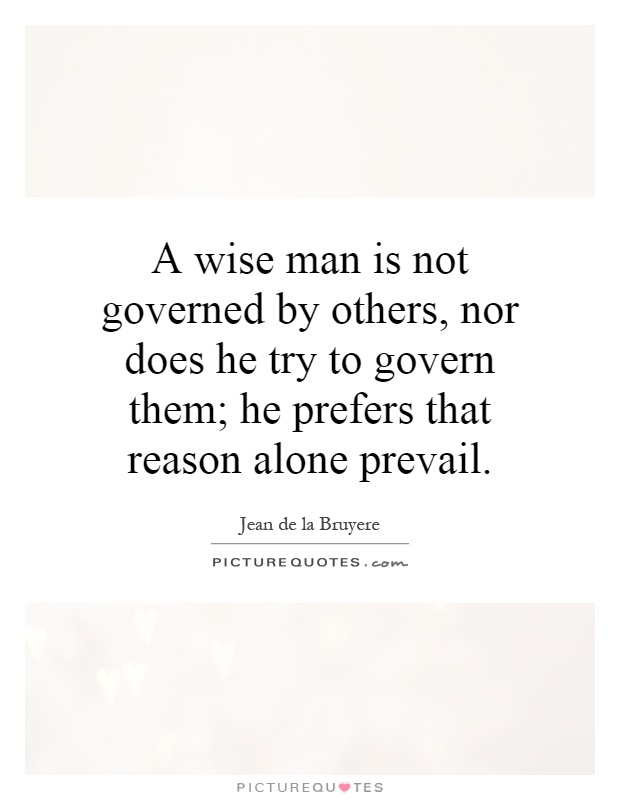A wise man is not governed by others, nor does he try to govern them; he prefers that reason alone prevail

A wise man is not governed by others, nor does he try to govern them; he prefers that reason alone prevail
Jean de La Bruyère was a French philosopher and moralist known for his keen observations on human nature and society. In his work, he often emphasized the importance of reason and wisdom in guiding one's actions and interactions with others. The quote "A wise man is not governed by others, nor does he try to govern them; he prefers that reason alone prevail" encapsulates La Bruyère's belief in the power of rational thought and self-control.La Bruyère believed that true wisdom lies in the ability to think for oneself and make decisions based on reason rather than being swayed by the opinions or actions of others. A wise man, in his view, is someone who is able to maintain his independence of thought and action, even in the face of external pressures or influences. This independence allows him to make sound judgments and act in accordance with his own principles and values.
At the same time, La Bruyère also recognized the importance of respecting the autonomy and agency of others. He believed that a wise man does not seek to control or manipulate those around him, but rather allows them the freedom to make their own choices and decisions. By refraining from trying to govern others, the wise man demonstrates his respect for their individuality and autonomy.
Instead of seeking to dominate or control others, the wise man relies on reason and logic to persuade and influence them. He understands that true persuasion comes not from force or coercion, but from the power of rational argument and sound judgment. By appealing to the intellect and reason of others, the wise man is able to win their respect and cooperation without resorting to manipulation or control.












 Friendship Quotes
Friendship Quotes Love Quotes
Love Quotes Life Quotes
Life Quotes Funny Quotes
Funny Quotes Motivational Quotes
Motivational Quotes Inspirational Quotes
Inspirational Quotes